detail profile luis garc c3 ada berlanga

Luis García Berlanga
Luis G. Berlanga
atau dikenal sebagai
Riwayat Hidup
One of the best known filmmakers in the world and director of some of the most famous films of Spanish cinema, tender in his vision of the characters, but satirical to the point of biting in his social analysis, clearly critical despite the censorship of the Franco regime.
He was born in 1921 into a wealthy Valencian family.
After the Second World War, he studied at the Escuela Oficial de Cine (IIEC/EOC), where he would later become a professor.
There he met Juan Antonio Bardem, and together they made their first film.
His narrative ability, together with the sharpness of his satire, bordering on nonsense, made him a popular filmmaker, but also valued by critics.
Nevertheless, within his comic line he oscillates between tenderness and the grotesqueness of his choral comedies.
Between both extremes are his first films, written in collaboration with Rafael Azcona, in which he develops a black humor, characteristic of both, corrosive denunciations of social hypocrisy and the death penalty.
In recent years he was president of the Filmoteca Nacional de España and director of a collection of erotic novels and short stories.
Info Pribadi
Peran Yang Di Mainkan Luis García Berlanga
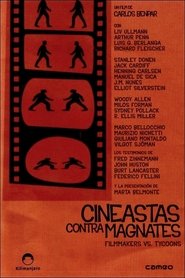 How the cinema industry does not...
How the cinema industry does not...Filmmakers vs. Tycoons 2005
How the cinema industry does not respect the author's work as it was conceived, how manipulates the motion pictures in order to make them easier to watch by an undemanding audience or even how mutilates them to adapt the original formats and runtimes to the restrictive frame of the television screen and the abusive requirements of advertising. (Followed by “Filmmakers in Action.”)
 During the Spanish Civil War a...
During the Spanish Civil War a...The Heifer 1985
During the Spanish Civil War a platoon of mismatched Republican soldiers cross the front-line to steal the bull that the enemy is going to fight on the local holiday of the nearby village. In addition to ruining the Nationalist faction's celebration they want the animal in order to butcher it and feed their famished troops. They get caught in the process and have to go through a series of funny and pathetic incidents before they can get back to their side.
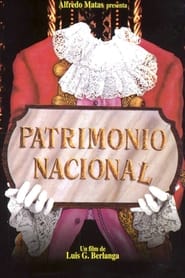 After the death of General Franco...
After the death of General Franco...National Heritage 1981
After the death of General Franco, the Leguineche family leaves their estate of Los Tejadillos, where they have remained for decades in voluntary exile, with the purpose of returning to Madrid to actively participate in the social events of the aristocracy and to get closer to the closest circle of the Spanish monarch. The obsession of the old marquis is centered on getting in touch with the most illustrious surnames, to ascend socially and to resume the pomp and courtly life that his family lost a long time ago. To this end, he decides to move into an old palace he owns, located in the center of the capital, but not before overcoming the difficulties posed by his wife, who deeply hates both her husband and her son. To regain control of the palace, the Marquis of Leguineche tries to handicap his wife, arguing an incurable mental illness, and then undertake a reform of the place in order to adapt it to aristocratic life.
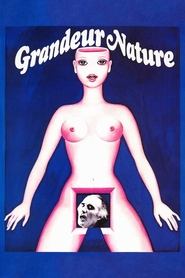 When Michel gets the lifesized sex...
When Michel gets the lifesized sex...Life Size 1974
When Michel gets the life-sized sex doll he ordered, shipped directly from Japan, he is only intrigued by it at first. Then the silent unresponsiveness of the thing begins to haunt him, and he finds himself reacting to it as if it were an equally unresponsive living woman. As time passes, more and more of his life is spent trying to satisfy or placate its relentless silence, and he goes somewhat mad. He dresses the doll and takes it with him wherever he goes. When his usually very tolerant wife discovers what is going on, her jealousy knows no bounds and she attempts to imitate this threatening love-object. The light-hearted quality of this addle-pated fantasy darkens quickly when various neighborhood men attempt to put the doll to its originally intended use.
 Leo Pozas native from Burgos and...
Leo Pozas native from Burgos and...Long Live the Bride and Groom 1970
Leo Pozas, native from Burgos and high bank clerk, arrives to a town on the Costa Brava, with his mother to marry Loli. Unexpectedly, Leo's mother died. This may mean the suspension of the wedding, a year of mourning and, perhaps, another relief, so that Leo and Loli hide the corpse of the old betrothal until after the wedding...
 Barcelona 1967 The pop culture revolution Jordi...
Barcelona 1967 The pop culture revolution Jordi...Tuset Street 1968
Barcelona 1967. The pop culture revolution. Jordi (Patrick Bauchau) is a rich playboy who runs around with a bunch of high-end hippies, smoking, drinking, dancing and daydreaming about Tuset Street, an effort to develop a popular street in the newer section of Barcelona after the models of Haight Ashbury Street in San Francisco and Carnaby Street in London. Jordi and his gang represent the new Barcelona, wealthy, artificial and striving for imported sophistication. On the older side of the city is El Paralelo, the theater district. At El Molino, one of its many music halls, performs Violeta (Sara Montiel), a showgirl in the old style tradition who supplements her singing income with prostitution. Somehow Violeta represents the old values, the "real world" living along side an artificial creation such as Tuset.
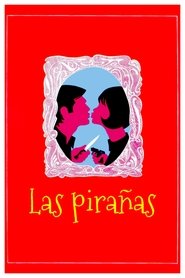 Ricardo is an executive who has...
Ricardo is an executive who has...Las pirañas 1967
Ricardo is an executive who has great success with women and behaves almost like a play-boy. His wife Carmen, an attractive housewife without children, feels ignored by him and seeks solace from her mother, who proposes Carmen a change in the way she acts in order to not permanently lose her husband or fall into madness.
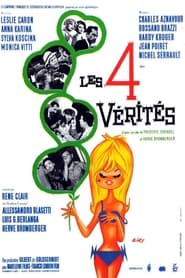 Les quatre vrits aka The Four...
Les quatre vrits aka The Four...The Four Truths 1962
"Les quatre vérités" aka "The Four Truths" is a movie anthology that consists of four segments, all loosely parodying fables from the 17th-century French poet Jean de la Fontaine. The US cut usually features only 3 segments.
 In a small Spanish town during...
In a small Spanish town during...Placido 1962
In a small Spanish town, during the Christmas holidays, a group of rich old ladies organize a peculiar event that consists of inviting a homeless person to sit down to dinner at their wealthy table. Plácido, a humble worker, is hired by the organizers to participate in a parade with his three-wheeled vehicle, a seemingly simple mission that will not be easy for him to accomplish.
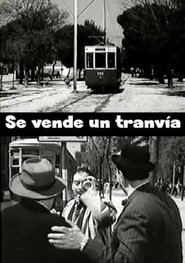 This excellent short film written by...
This excellent short film written by...Streetcar for Sale 1959
This excellent short film written by the magnificent filmmaker duo of Luis García Berlanga and screenwriter Rafael Azcona was to be part of a series entitled Los Pícaros (The Rogues) which was never continued. These two artists were responsible for such masterpieces of Spanish cinema as Plácido and El verdugo (The Executioner). Here, Berlanga and Azcona collaborated for the first time, setting the stage for the post-war "Berlanguiana" vision that would develop. José Luis López Vázquez plays Julián, a seedy swindler, who with his cronies tries to sell a streetcar to a rich but naive farmer, a newcomer to the city. High jinx ensue. With this film begins the great stage of Berlanga's filmmaking in which he mixes a little social criticism and notes of anti-clericalism with a great deal of farce.
 A small Spanish town Villar del...
A small Spanish town Villar del...Welcome Mr. Marshall! 1953
A small Spanish town, Villar del Río, is alerted to the upcoming visit of American diplomats and its ruling townsmen begin preparations to impress the American visitors, in the hopes of benefiting under the Marshall Plan. Hoping to demonstrate the side of Spanish culture with which the visiting foreign officials would be more familiarized, the Castilian citizens don unfamiliar Andalusian costumes, hire a renowned flamenco performer, and re-decorate their town in Andalusian style, meantime waiting for their uncertain arrival.
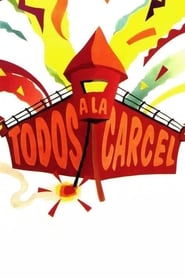 A prison in Valencia hosts an...
A prison in Valencia hosts an...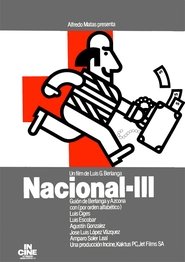 In order to solve economic problems...
In order to solve economic problems...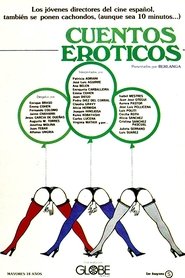 A set of nine stories whose...
A set of nine stories whose...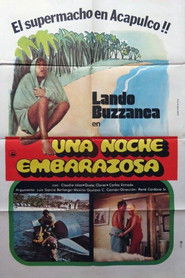 An Italian taxicab driver is used...
An Italian taxicab driver is used... Count Fernando called Didino a shy...
Count Fernando called Didino a shy...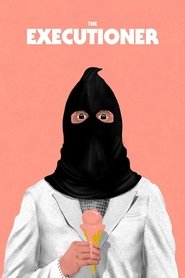 An undertaker gets married to an...
An undertaker gets married to an...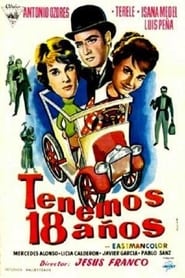 Comedy about the surreal holiday of...
Comedy about the surreal holiday of... Professor Hamilton a naive Nuclear scientist...
Professor Hamilton a naive Nuclear scientist...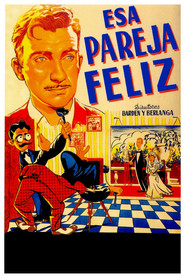 Juan and Carmen are a humble...
Juan and Carmen are a humble...